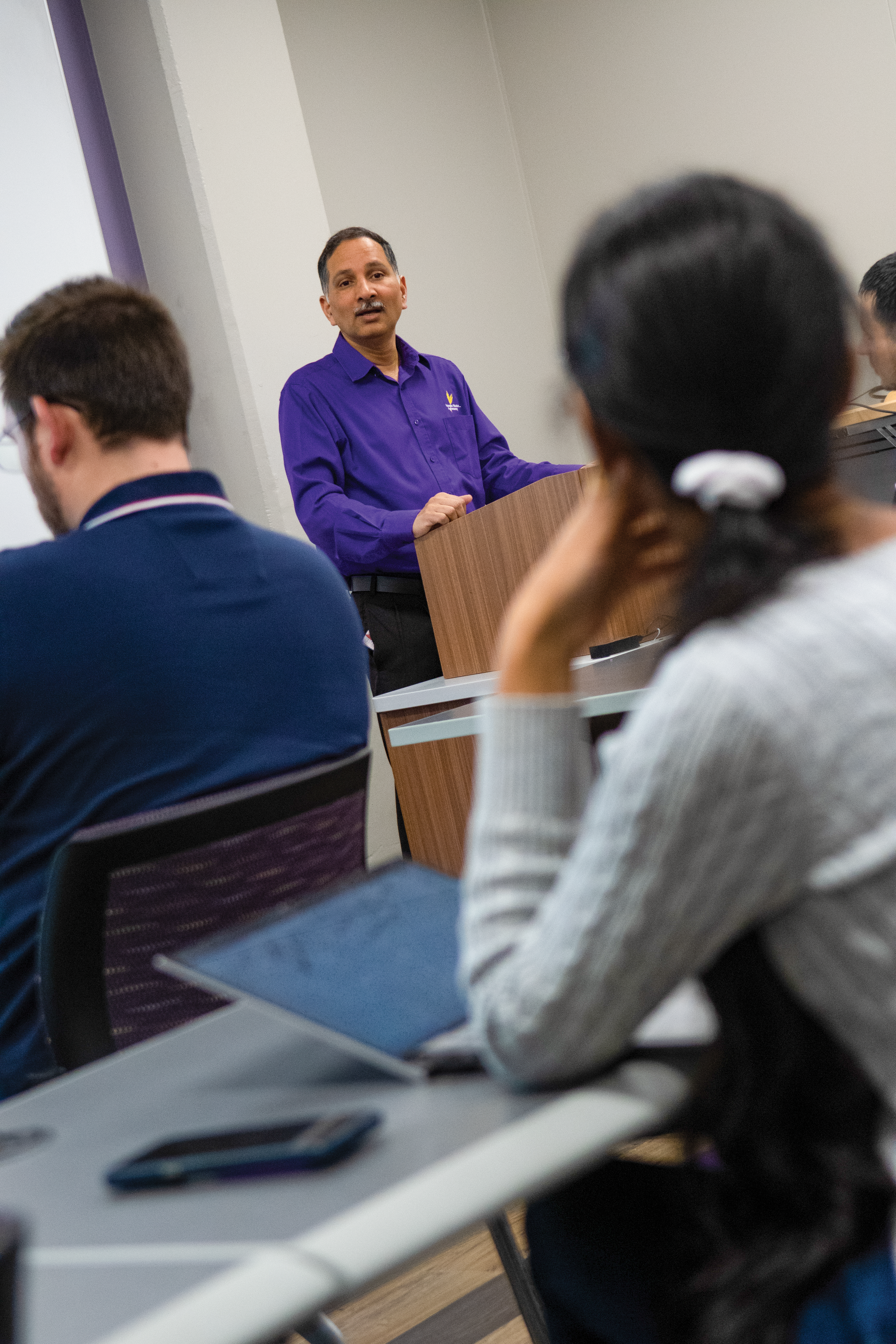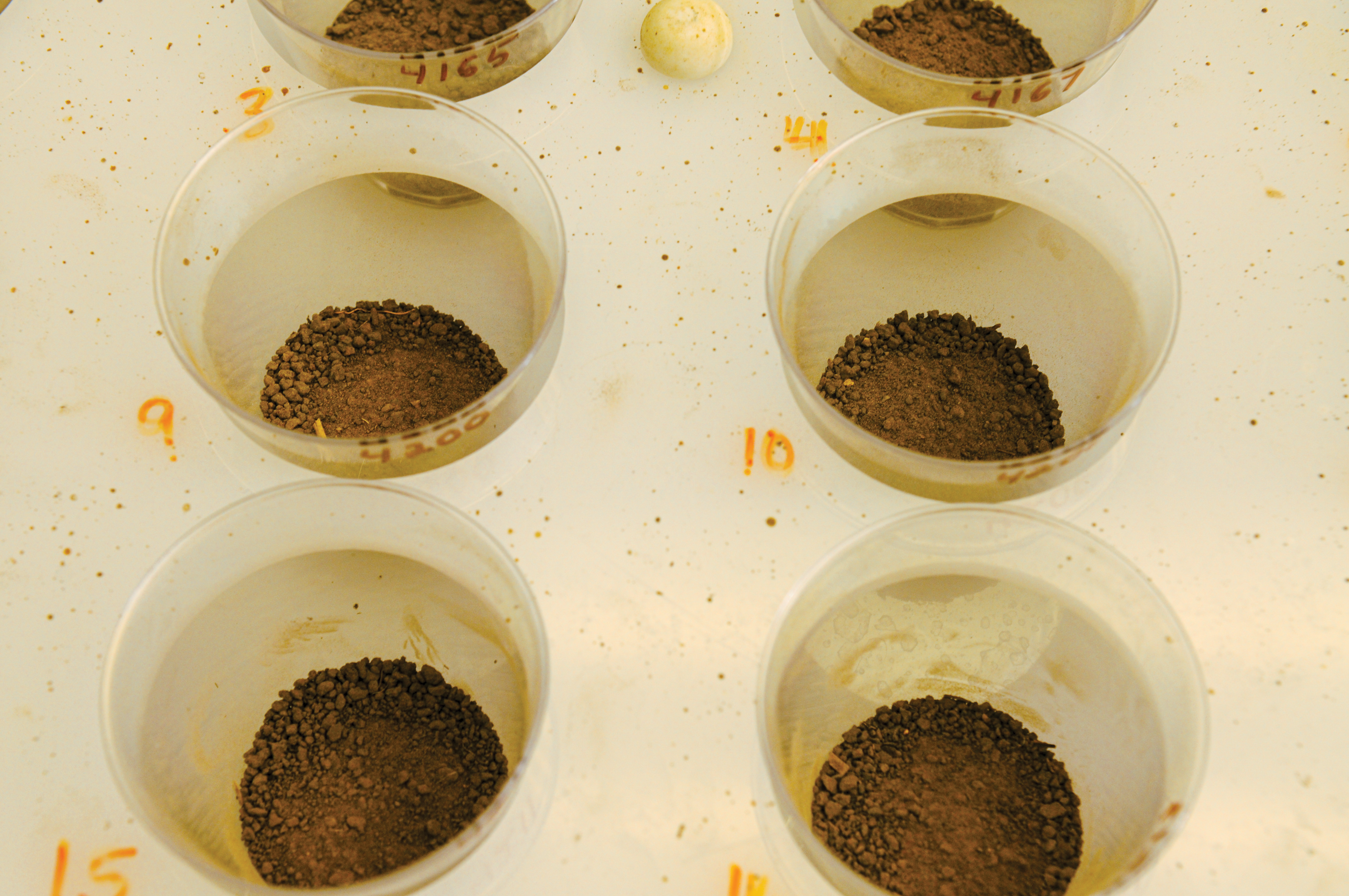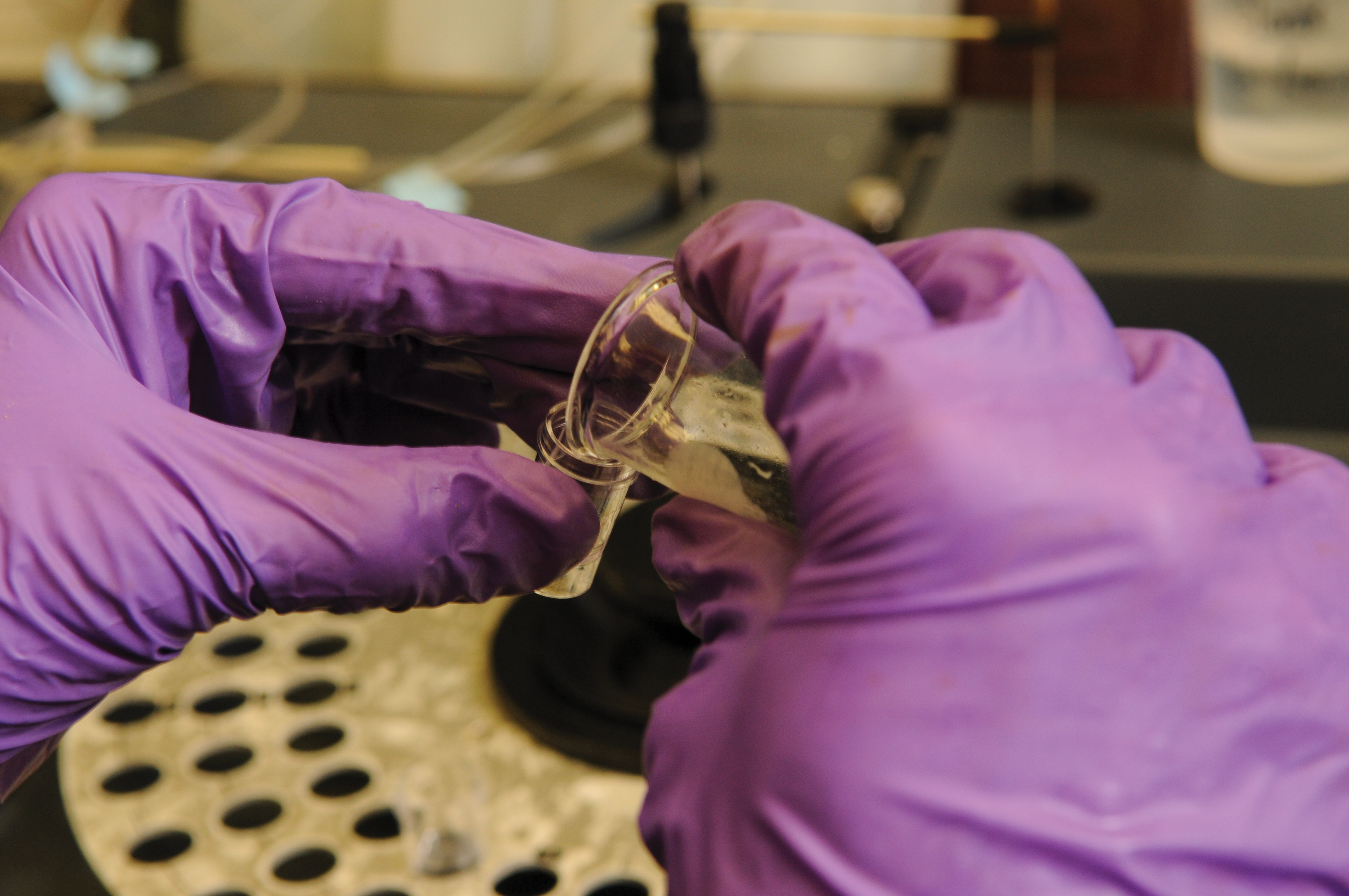Influential Researcher
 Vara Prasad recognized as one of the world’s top researchers
Vara Prasad recognized as one of the world’s top researchers
By Susan Schiff
Photos by Dan Donnert
As crop and livestock producers are challenged by climatic uncertainty and extreme weather events, each and every day they worry about finding solutions – and K-State's R.O. Kruse Professor of Agronomy Vara Prasad is laser-focused on helping them.
Recently, Prasad was lauded for appearing on the list of the top 1% of the world’s most influential and highly cited researchers for 2022. Launched in 2014 by Clarivate, a global research analytics company, the annual list includes those whose work has been cited most in peer-reviewed publications during the previous decade. His research mainly targets how to better manage crops and identify new crop genotypes that respond well to heat stress and drought.
“Kansas is the perfect place to test drought and heat impact since average annual precipitation levels vary from about 15 inches in southwest Kansas to almost 45 inches in southeast Kansas,” said Prasad. “Similarly, in July and August, temperatures can go above 90 degrees Fahrenheit and a few days above 100.”
 As the director of the Feed the Future Innovation Lab for Collaborative Research on Sustainable Intensification (SIIL), Prasad is able to apply his research findings in Kansas to improve outcomes in Africa and Asia (e.g., Senegal, Burkina Faso, Ethiopia, Bangladesh and Cambodia). The relationship is reciprocal – he can then bring back what he’s learned in Africa and Asia to benefit farmers in Kansas.
As the director of the Feed the Future Innovation Lab for Collaborative Research on Sustainable Intensification (SIIL), Prasad is able to apply his research findings in Kansas to improve outcomes in Africa and Asia (e.g., Senegal, Burkina Faso, Ethiopia, Bangladesh and Cambodia). The relationship is reciprocal – he can then bring back what he’s learned in Africa and Asia to benefit farmers in Kansas.
“We have moved beyond looking for ways to just increase crop production,” said Prasad. “We now must find ways to increase crop nutrition, which can be reduced by drought and extreme temperatures.
“Today, there’s a lot of hidden hunger – approximately 30% of children in West Africa and South Asia are deficient in zinc and iron, which are critical nutrients for normal growth as well as for blood cell, neurologic and cognitive development,” Prasad added.
To date, Prasad has published 380 peer-reviewed journal articles and book chapters, and his research has been cited 23,500 times by other scientists. He has received more than $120 million — about $85 million as principal investigator — in grant funding and donations to support his research. Prasad is also an elected fellow of the American Society of Agronomy, the Crop Science Society of America, and the American Association for the Advancement of Science.
Although he is considered one of the world’s most influential researchers, Prasad believes his true legacy will be as a teacher and leader in creating land-grant-type institutions in countries struggling with food scarcity.
“Personally, teachers and advisers have had the greatest influence in my career,” said Prasad. “Had it not been for my chemistry teacher in middle school and professors at the university during my undergraduate and graduate studies, I would have never become a scientist. I want to be the same kind of teacher and inspire students and show them as a scientist they can do great things that make a difference in lives and livelihoods of people. We need more scientists.”
 During Prasad’s 17 years at K-State, he has taught and mentored more than 200 undergraduate and graduate students and research scholars. Many have gone on to become professors, researchers and leaders in ag-related institutions and industries.
During Prasad’s 17 years at K-State, he has taught and mentored more than 200 undergraduate and graduate students and research scholars. Many have gone on to become professors, researchers and leaders in ag-related institutions and industries.
“Their influence will continue to grow and compound,” said Prasad.
Prasad said his belief in the value of the U.S. land-grant university mission of providing agricultural teaching, research, outreach and service to the people in the states they serve has led him to set up similar institutional structures in countries he works with through SIIL.
“Land-grant universities have to focus on providing relevant research that farmers, ranchers and industries can adopt to improve their yields and their profits,” said Prasad. “Having access to the evidence-based and unbiased knowledge that comes from a research university and the scientists who work there is incredibly valuable to the people they serve.”
“We are extremely proud of Dr. Prasad’s recognition as one of the world’s top scientists,” said Dean Minton. “What’s just as impressive, though, is his commitment to teaching and creating extension services in countries struggling with food insecurity outside the U.S. That says so much about Dr. Prasad’s ability to identify long-term solutions and his passion for helping people.”